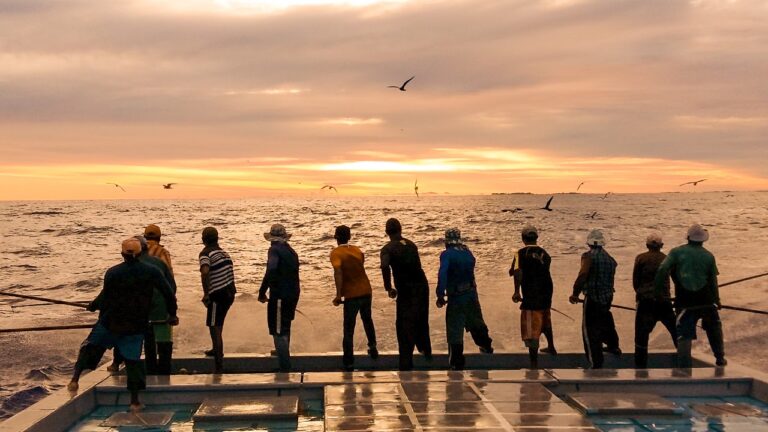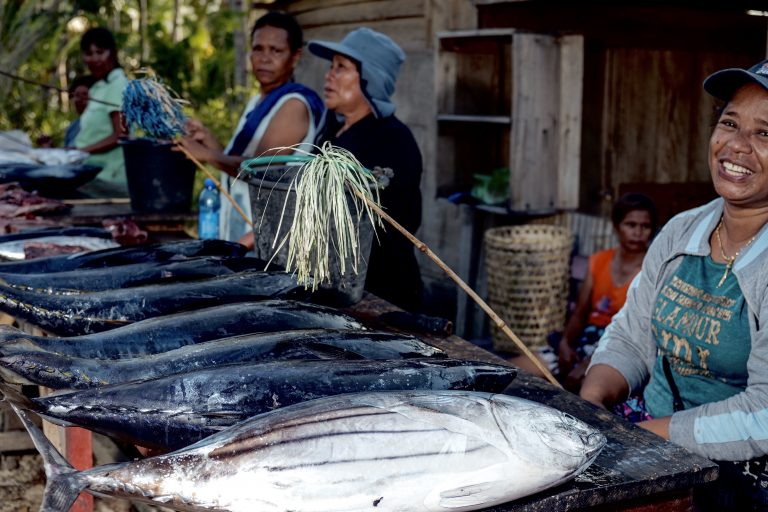Since IPNLF’s initial novel work evidencing the social benefits associated with one-by-one fisheries, the sustainable seafood sector has largely moved on from solely focusing on the environmental impacts of fisheries, and social responsibility issues now have an enormous amount of traction in the marketplace. Organisations throughout the seafood sector now focus on social responsibility and evidencing how businesses are demonstrating appropriate due diligence in mitigating abuses of human rights, labour rights and inadequate safety measures occurring within their supply chains.
Ensuring that socially responsible best practices are occurring throughout any supply chain is paramount. While supporting one-by-one tuna fisheries, IPNLF is a leader in shifting the global narrative towards responsible seafood, which duly considers the local, social, and economic impacts and human rights issues in fisheries. As such, securing, safeguarding, and building opportunities for coastal communities to participate in highly competitive global seafood markets is a crucial area of our work. To ensure greater social responsibility, we focus on the following:
The social benefits of one-by-one tuna fisheries are most often closely associated with coastal communities in developing countries; they underpin local livelihoods, employment opportunities, and food security. To prevent these fisheries from being marginalised within the marketplace, it is essential to effectively communicate and promote the importance of social benefits to the seafood marketplace.

One-by-one fisheries are characterised by a close connection to local coastal communities, fishing closer to shore and for shorter lengths of time. This provides fishers with greater economic flexibility, the ability to spend more time at home with their families, and experience a better quality of life than fishermen out at sea for months.
For sustainable local fisheries and their communities, tuna fishing is more than just a job; it’s a way of life. Traditional, one-by-one fishing methods have been passed down through generations in many cultures. These fisheries’ cultural and traditional aspects keep fishers fishing and living locally for long periods, which retains the accumulation of wealth in the area and contributes to poverty alleviation.

Furthermore, the supply chains of these fisheries offer essential employment opportunities to women in coastal communities, who make up a significant proportion of the workforce in many processing plants, such as canneries.
Women are crucial to family nutrition and food security in coastal communities. Increased, sustained employment for them will contribute to the food security of their families, and their improved financial security through employment increases their purchasing power and allows them to improve the nutrition of their diet.
“Artisanal fisheries create jobs providing 90% of employment in the fisheries sector, they are not only important as a source of income for many families, they also form social cohesion. The cohesion of coastal communities.”
– Luis Rodrigues, former Regional Director of Azores Fisheries